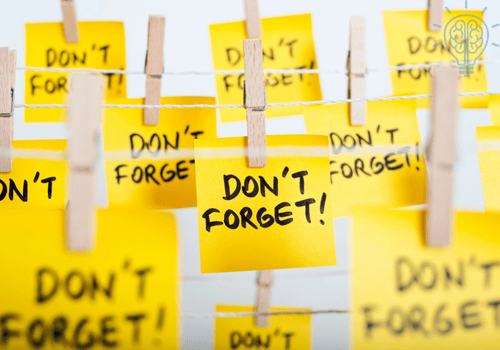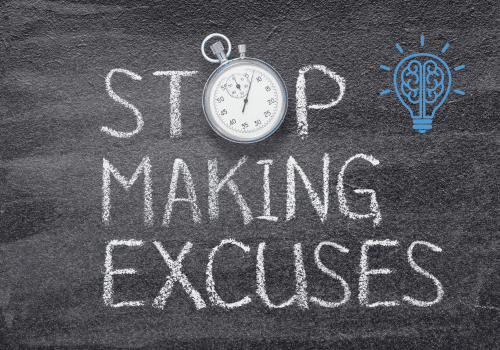“I swear, I sat down to work five minutes ago—how is it already been an hour?”
If this sounds familiar, you’re not alone. Many adults struggle to stay focused, constantly bouncing between tasks, scrolling on their phones, or getting lost in distractions. You might blame yourself for not having enough willpower, but the truth is, focus isn’t just about trying harder—it’s about how your brain manages attention.
Before we jump into strategies, let’s look at why distraction happens and how executive function plays a role in your ability to stay on track.
Why Staying Focused Feels Impossible
Do you sit down to work, only to find yourself scrolling social media 10 minutes later? Do you start one task, get distracted, and suddenly realize an hour has passed? If so, you’re not alone.
For many adults, distraction isn’t just about willpower—it’s a sign that executive function skills like attention regulation, task switching, and cognitive control need support. When these skills aren’t working efficiently, focusing on what truly matters can feel impossible.
The good news? Focus is a skill that can be strengthened. By understanding why distraction happens and using practical strategies, you can train your brain to stay on track.
Reframing the Problem: It’s Not Just Laziness
Many people struggling with focus think, “Why can’t I just pay attention?” or “Why am I like this?” But distraction isn’t a personal failure—it’s a sign that your brain is seeking stimulation, relief, or avoidance.
Instead of asking, “Why do I keep getting distracted?”, try asking:
- ✅ Is my brain under-stimulated, leading me to seek novelty?
- ✅ Am I feeling overwhelmed and avoiding something difficult?
- ✅ Do I lack a clear plan, making it easy to jump from task to task?
When you understand why you’re getting distracted, it becomes easier to take control.
The Executive Function Behind Focus
Focus isn’t just about “paying attention.” It’s controlled by several executive function skills that work together:
1. Attention Regulation (Directing Focus Where You Want It)
Some people struggle with attention drift, meaning their focus naturally wanders unless they’re deeply engaged.
🧠 Why It Happens:
- Your brain is wired to seek novelty, making routine tasks feel boring.
- Distractions provide quick dopamine hits, reinforcing bad habits.
- Your environment is full of attention stealers (notifications, background noise, open tabs).
📌 How to Help:
- Use the 5-minute rule: Commit to working for 5 minutes. Once you start, it’s easier to continue.
- Try single-tasking: Close extra tabs, put your phone in another room, and focus on just one thing.
- Use background sound like white noise or instrumental music to maintain focus.
2. Task Switching (Avoiding the “Multitasking Trap”)
Multitasking feels productive, but it actually makes focus worse. Every time you switch tasks, your brain has to reset, which wastes mental energy.
🔄 Why It Happens:
- Switching tasks gives the brain a novelty boost, which feels rewarding.
- People overestimate their ability to do multiple things at once.
- Without clear priorities, jumping between tasks feels natural.
📌 How to Help:
- Use the 20-minute rule: Work on one task for at least 20 minutes before switching.
- Batch similar tasks together—check emails all at once instead of throughout the day.
- Write down intrusive thoughts or new ideas instead of immediately switching tasks.
3. Impulse Control (Resisting Distractions in the Moment)
Ever feel the urge to check your phone, even when you know you shouldn’t? That’s your executive function struggling with impulse control.
📱 Why It Happens:
- Instant gratification (social media, messages) is more rewarding than long-term work.
- Stress and boredom make distractions feel even more appealing.
- Your brain isn’t used to resisting urges, so it follows old habits.
📌 How to Help:
- Use the 10-minute delay trick: If you want to check your phone, set a 10-minute timer. Often, the urge passes.
- Make distractions harder to access—keep your phone in another room or use an app blocker.
- Use “If-Then” planning: “If I feel the urge to check my phone, then I will take a deep breath and refocus.”
Practical Strategies for Improving Focus
1. Time Blocking
Give your brain clear focus periods:
- ✅ Use Pomodoro timers (25 minutes work, 5 minutes break).
- ✅ Plan your day in “focus blocks” (e.g., deep work from 9-11 AM).
- ✅ Set a “shutdown ritual” to signal when work is done.
2. Environment Optimization
Reduce distractions before they happen:
- ✅ Declutter your workspace to minimize visual distractions.
- ✅ Use noise-canceling headphones or background sounds.
- ✅ Put your phone on airplane mode during focus sessions.
3. Rewarding Focus
Make focus feel good:
- ✅ Set small rewards for completing tasks (“Once I finish this, I’ll watch an episode of my favorite show”).
- ✅ Track progress visually—checklists or habit trackers work well.
- ✅ Pair focus with something enjoyable, like working in a cozy space or using a favorite drink.
A Gentle Next Step: Coaching Can Help
If you’ve tried these strategies and still struggle with focus, executive function coaching can help. We provide personalized tools to strengthen attention, reduce distractions, and build sustainable focus habits.
📞 Want to learn more? Contact us today for a free discovery call—we’re here to help.




